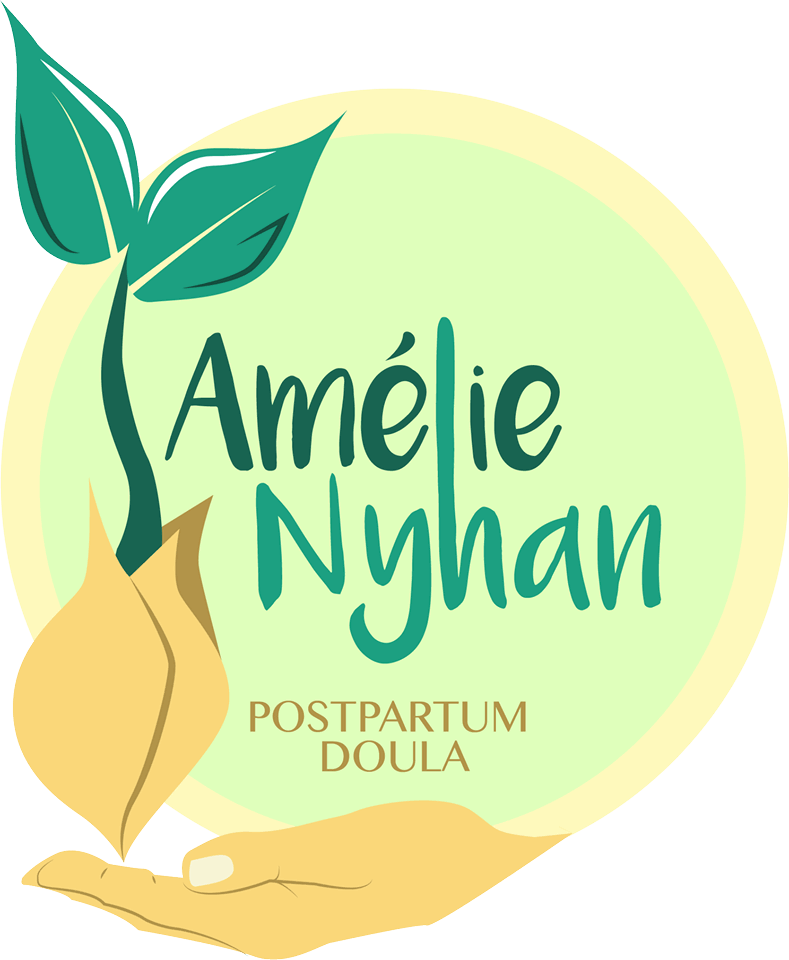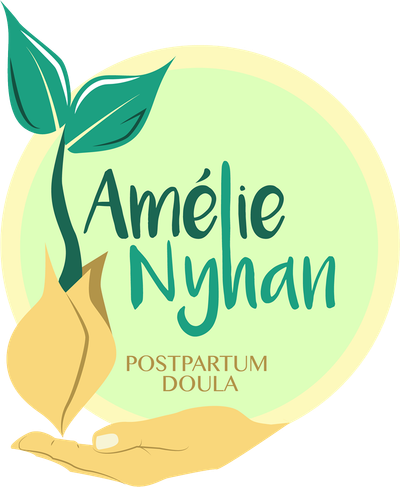The value of early postpartum support
In her book “Women who run with the wolves”(1992), Clarissa Pinkola Estès talks about the new mother in great detail. She explains: “Every new mother begins as a child-mother. A child-mother is old enough to have babies and has good instincts in the right direction, but she needs the mothering of an older woman or women who essentially prompt, encourage, and support her in her mothering of her children.”
The Postpartum Doula is a non-medical professional who has been trained in the Arts of supporting, guiding and accompanying families during the important and often fragile postnatal period.
In many cultures, the days and weeks following a baby’s birth are revered and celebrated, and the new mother is cared for by close family and friends. Some cultures call it “The Sacred Window”, “Lying-in period” or “Quarantine” and it averages a 40 days period directly following the birth. During this time, the new mother is nurtured in many ways and allowed to focus on her own recovery and on bonding with her newborn baby, without the extra pressures of looking after any household tasks.
In our modern occidental society, women are inundated by cultural, societal and media messages about fitness, bouncing back after childbirth and generally “getting back to normal”. These women are also very much secluded and left alone to face the unknown of motherhood. Their partners are left unsupported, unprepared and under pressure without adequate parental leave and have no extra support or guidance themselves in looking after their newborn baby and supporting their postpartum partners.
In western societies, where people are more mobile than ever, and young adults often live far away from home, ‘newborn’ families are often isolated from family and friends. The Postpartum Doula’s role is to allow for the new mother to slow down, take the necessary time to physically and mentally recover from childbirth and to accompany her on her new journey into motherhood. The Postpartum Doula offers guidance, information and practical support to the new mother, her partner, siblings and any other supporting adult. As D.W Winnicott rightly stated: “There is no such a thing as a baby, there is a baby and someone”.
The Postpartum Doula covers specific areas of practical at-home support, such as helping with family meal preparation, making healthy snacks for the new mother, undertaking light household tasks, running local errands and assisting with siblings’ care while the new parents look after the newborn baby, or take time out to care for themselves.
While the practical support is most visible, the Doula offers much more, if less noticeable care. She offers emotional support to the new parents, infant feeding guidance and advice whether the new mother is breastfeeding, bottle feeding or formula feeding and companionship, an attentive ear to listen to what the new mother wants to say, and often pick up on what is left unsaid also.
The DONA trained Postpartum Doula follows a Code of Ethics and Standard of Practice, which guide her in her work and encourages her to attend to and support each family in a tailored manner and to the best of her ability, or to refer a family to another trained professional Doula if she cannot work with them. The Standard of Practice also sets the expectation that the Postpartum Doula will seek out further training and lifelong learning. These standards effectively guide the work of the Postpartum Doula in a practical and clear manner.
The Postpartum Doula has expertise in all aspects of newborn care and can guide and coach the new parents to care for the newborn baby. She may also support the siblings of the newborn baby through their own transition and help them welcome the new addition to the family with reduced stress and anxiety for the family. She is present to ease the emotional load from the expanding family during the fragile transition phase.
Overall, the Postpartum Doula is a knowledgeable presence in the household, a strong and quiet companion who brings comfort, reassurance and helps build confidence within the postnatal family.
The Postpartum Doula is not a medical professional and will have a network of other professionals in her local and working areas, so that she can offer practical information on other services to the families she works with.
She has a specific role and practice framework and differs in her role from nannies or night nurses for example. Her main focus is on the new mother and her recovery from pregnancy and birth, and on her family during this important transition period.
During the certification process, I worked with a family who had recently moved from their country of origin to settle in my local area. The soon to be mother hired me for companionship, as she had no family or friends close by. We spent some time before the birth of her baby to discuss her needs. Through local resources I provided her, (local websites, local mum and baby groups…) she could plan ahead before the arrival of her new baby, expand on her support network and make contact to ensure she would have the extra support put in place.
As part of our prenatal visits and conversations we learned about each other and I took the opportunity to research areas I knew she may need extra and special care and attention. This is part of your Postpartum Doula's role to understand your specific needs and wishes before the arrival of your baby in order to make your experience a positive one!
After her baby’s arrival and for the time I worked with this family, I made sure I was attentive to the mother’s feelings and behavior and listened at length to her concerns and anxieties. I made sure she felt comfortable and at ease during this important transition for her and her family. I am glad to report that by the end of my work with this family, Mum had shown no sign of postnatal depression and expressed clearly to me that her experience of having a Postpartum Doula had greatly enhanced her experience as a new mother. She felt positive, valued and able in her role as a mother, and as a woman.
It is often said that the role of the Postpartum Doula is to “Mother the Mother”. As part of this, the Postpartum Doula can support the new parents through listening to their baby’s birth story and debriefing with them their experience of the birth; guide the new parents through every aspect of newborn care; help them in a practical manner; providing accurate and up to date information and evidence based advise and education and also offering companionship and emotional support to each family member.




